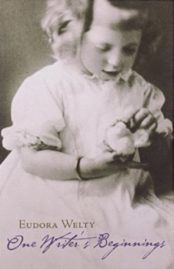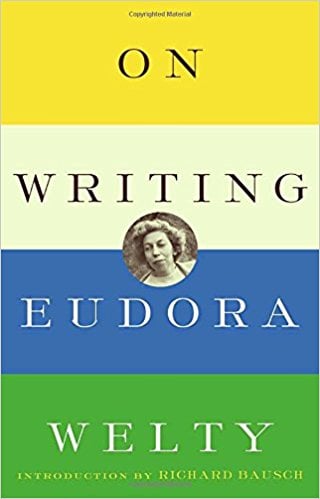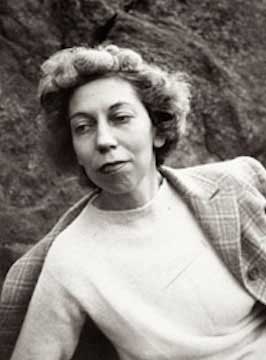7 Thoughtful Ideas on the Art of Reading by Eudora Welty
By Nava Atlas | On January 5, 2015 | Updated September 16, 2022 | Comments (2)

Eudora Welty (1909 – 2001) was just as avid a reader as she was a writer. It isn’t hard to see how reading thoughtfully can make one a better thinker and writer.
Welty won numerous awards for her writing, among them, a Pulitzer Prize (for The Optimist’s Daughter, 1973 — which many critics considered her best novel), an American Book Award, National Medal for Literature, and The Presidential Medal of Freedom. She was a six-time winner of the O. Henry Award for Short Stories.
Welty dispensed gentle wisdom on the subject of how being a good writer is intertwined with the love of reading. Here are several of her ideas on the art of reading gathered from her nonfiction books, notably On Writing and One Writer’s Beginnings.
. . . . . . . . .
Disappointment that a book has to end
“My main disappointment was always that a book had to end. And then what? But I don’t think I was ever disappointed by the books. I must have been what any author would consider an ideal reader. I felt every pain and pleasure suffered or enjoyed by all the characters. Oh, but I identified!” (Conversations with Eudora Welty, 1984)
. . . . . . . . . .

Enjoy more musings about the bookish life
. . . . . . . . .
Devouring books always encouraged
I read library books as fast as I could go, rushing them home in the basket of my bicycle. From the minute I reached our house, I started to read.
Every book I seized on, from Bunny Brown and His Sister Sue at Camp Rest-a-While to Twenty Thousand Leagues Under the Sea, stood for the devouring wish to read being instantly granted. I knew this was bliss, knew it at the time. Taste isn’t nearly so important; it comes in its own time. (One Writer’s Beginnings, 1984)
Great fiction shows us how to face our feelings
Great fiction shows us not how to conduct our behavior but how to feel. Eventually, it may show us how to face our feelings and face our actions and to have new inklings about what they mean. A good novel of any year can initiate us into our own new experience.” (On Writing, 2002)
. . . . . . . . .
See also: 10 Inspiring Thought on Writing from Eudora Welty
. . . . . . . . .
In love with books
It had been startling and disappointing to me to find out that story books had been written by people, that books were not natural wonders, coming up of themselves like grass.
Yet regardless of where they come from, I cannot remember a time when I was not in love with them — with the books themselves, cover and binding and the paper they were printed on, with their smell and their weight and with their possession in my arms, captured and carried off to myself.” (One Writer’s Beginnings, 1984)
. . . . . . . . .
The moment and memory
Fiction shows us the past as well as the present moment in mortal light; it is an art served by the indelibility of our memory, and one empowered by a sharp and prophetic awareness of what is ephemeral. It is by the ephemeral that our feeling is so strongly aroused for what endures, or strives to endure. (On Writing, 2002)
. . . . . . . . .

See also: 4 Ways to Love Books as a Family
. . . . . . . . . .
The power of imagination
Both reading and writing are experiences — lifelong — in the course of which we who encounter words used in certain ways are persuaded by them to be brought mind and heart within the presence, the power, of the imagination. (On Writing, 2002)
. . . . . . . . . .
Writing comes from a devotion to reading
“Indeed, learning to write may be part of learning to read. For all I know, writing comes out of a superior devotion to reading.” (On Writing, 2002)
. . . . . . . . . .


There was a book that Chelsea Handler was reading and it had her quote in it. Do you know which book?
Sorry, Celine — I don’t know. Do you mean Eudora Welty’s quote? Any other info you could share?